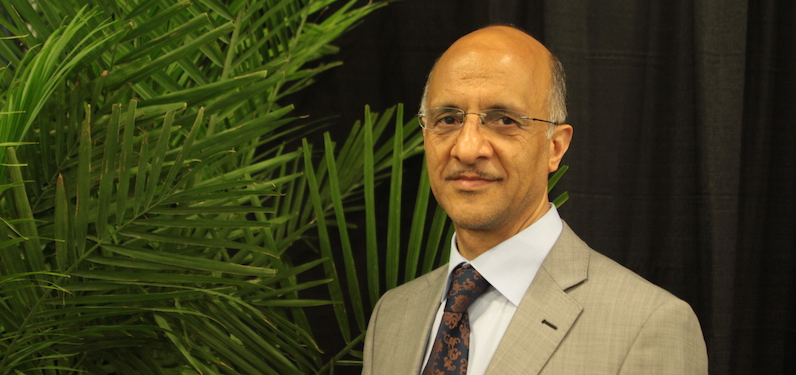OB: There is a huge trend towards higher education among the younger generation, so there’s a huge opportunity to expand, to generate money for them. Then the second one is they can contribute to our economic growth and help rebuild Afghanistan.
News and business analysis for Professionals in International Education
Have some pie!
Osman Babury, Ministry of Higher Ed, Afghanistan

The PIE: Are you working with any partners on quality assurance or accreditation?
OB: Yes, we are partnering with different organisations including UK institutions – the British Council is mediating with certain universities there. There’s also a project called PAL supported by the British Council, to train higher education leaders, the second cohort, is assigned for the quality assurance and accreditation.
“Now we have some students mainly from India and Turkey in Afghanistan higher education institutions. At the same time we have around 15,000 students abroad”
The PIE: You said you were trying to provide and education that answers the skill needs of industry in Afghanistan. What are those necessities?
OB: We believe that we have to produce graduates and even faculty members who will be able to innovate in higher education. That is our strategic goal: how to enhance the capacity of our graduates to be really responsive in terms of the needs of technical life of Afghanistan. We have a big, big university in Kabul called Kabul Polytechnic University. This university is the focus of our higher education Ministry. It has many partnerships with different universities and we have allocated a substantial budget for this university to be able to enhance the capacity. What’s very interesting is for the first time in the history of Afghanistan, this university is going to host a community college.
There are two programmes we initiated there. One is computer science, and the second one is medical engineering – biomedical engineering.
The PIE: In terms of looking outward, does your ministry have a strategy for internationalisation?
OB: Sure. I have to mention that 30 years ago Kabul University and others were hosting many international students from different countries, including Western countries like the United States. And now we have resumed it. Now we have some students mainly from India and Turkey in Afghanistan higher education institutions. At the same time we have around 15,000 students abroad who are allotted through our governmental scholarship scheme and through scholarships provided by different countries – Fulbright, for instance.
The PIE: How many students does the government scholarship programme fund?
OB: Through that we have around 5,000 fully funded students in Malaysia, India and Turkey.
“We are imposing a very good mechanism to ensure those students we are sending through scholarship come back”
The PIE: Is there any concern about brain drain, especially in light of the human capacity you lost during the war?
OB: I would like to say that in spite of all the bad reflection from Afghanistan, especially after 2014 when the international forces left, it doesn’t seem to be a big, serious problem for us. We are imposing a very good mechanism to ensure those students we are sending through scholarship come back. We are sending those people who guarantee they will be back and they shall serve the government and the community of Afghanistan and we are confident that by having them back, they can contribute very constructively in terms of rebuilding the country, in terms of governance.
The PIE: You just had elections in Afghanistan – is that going to change anything?
OB: We are hoping, yes. We are hoping for a positive change in Afghanistan, though we are happy with all our achievements over the last 12 years – a lot of them the first time in the history of Afghanistan – but we have to be very realistic in terms of building the country after three decades of war. I believe that it will take many years to recover from the casualties and disorder, but education is the basis, the basic tools in this regard to improve mental health and social promotion – those are the issues we need to focus on and we need time for that.
Still looking? Find by category:



It is an interesting to know about the achievemnts in higher education of Afghanistan.
I as an original Afghan from France appreciate the PIE for this inteview.
Regards
It is very interesting to know about the progresses in Higher Education of Afghanistn.
Thanks to PIE